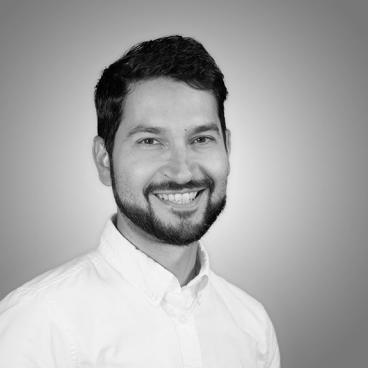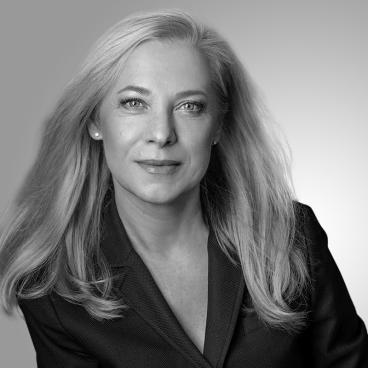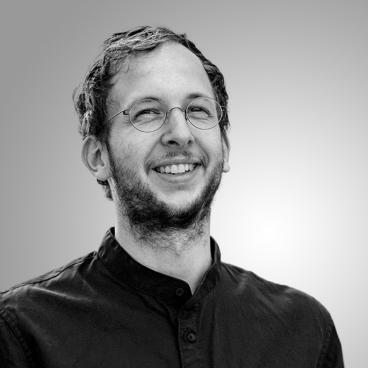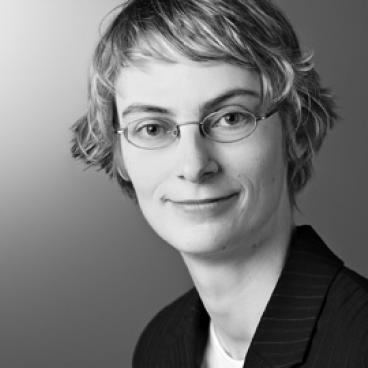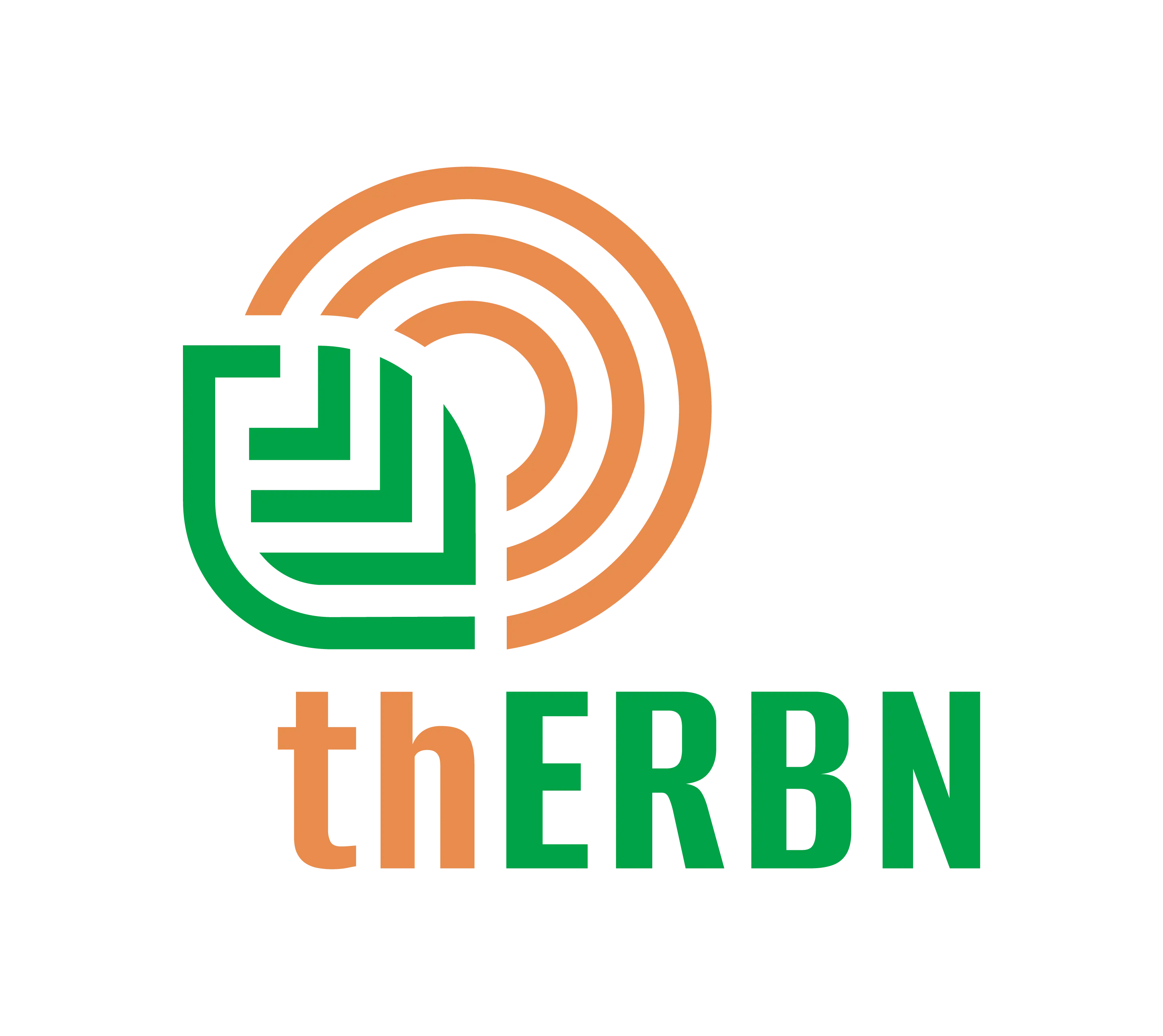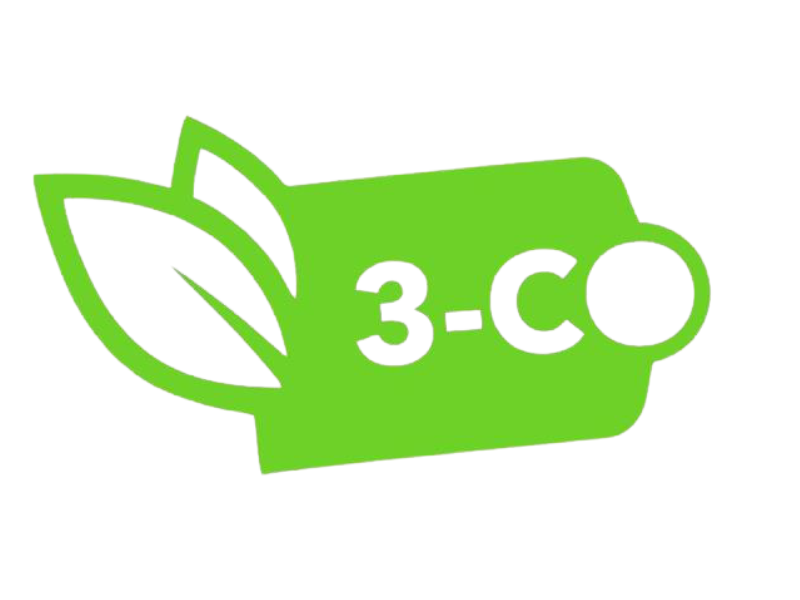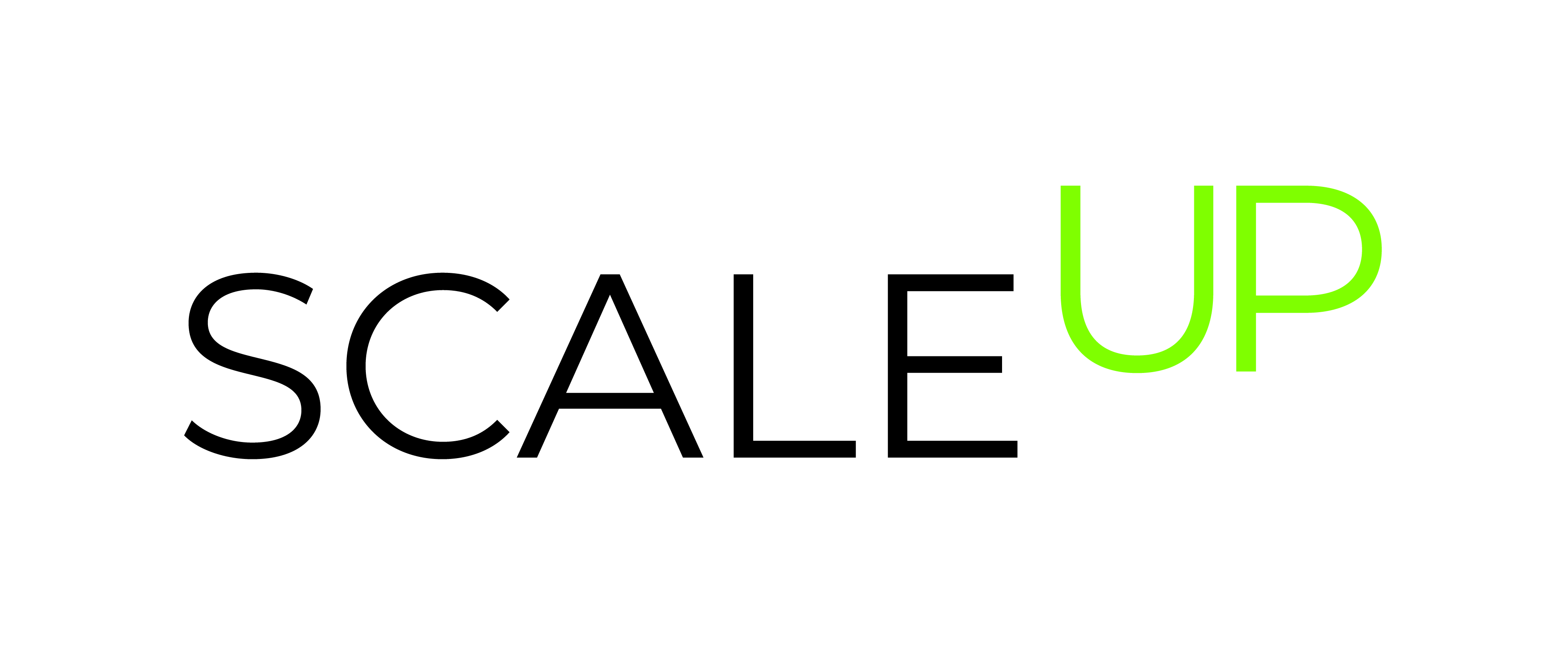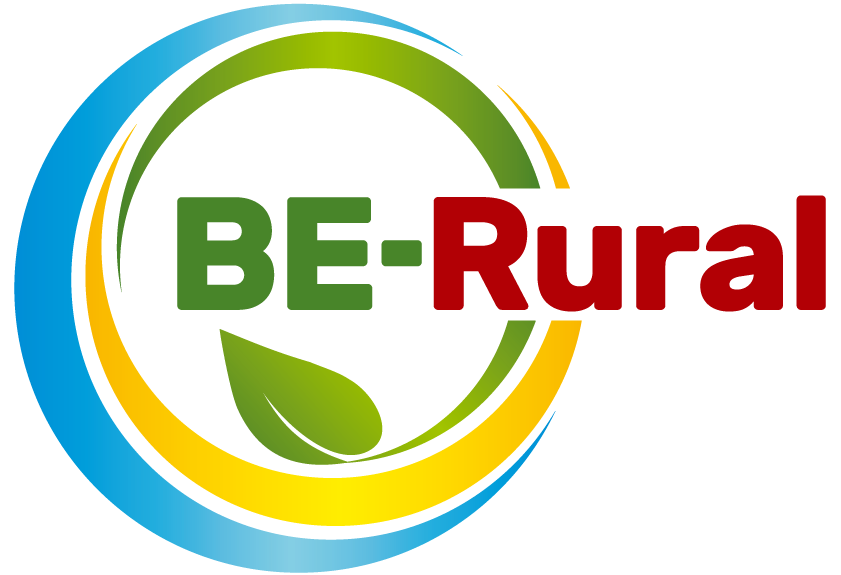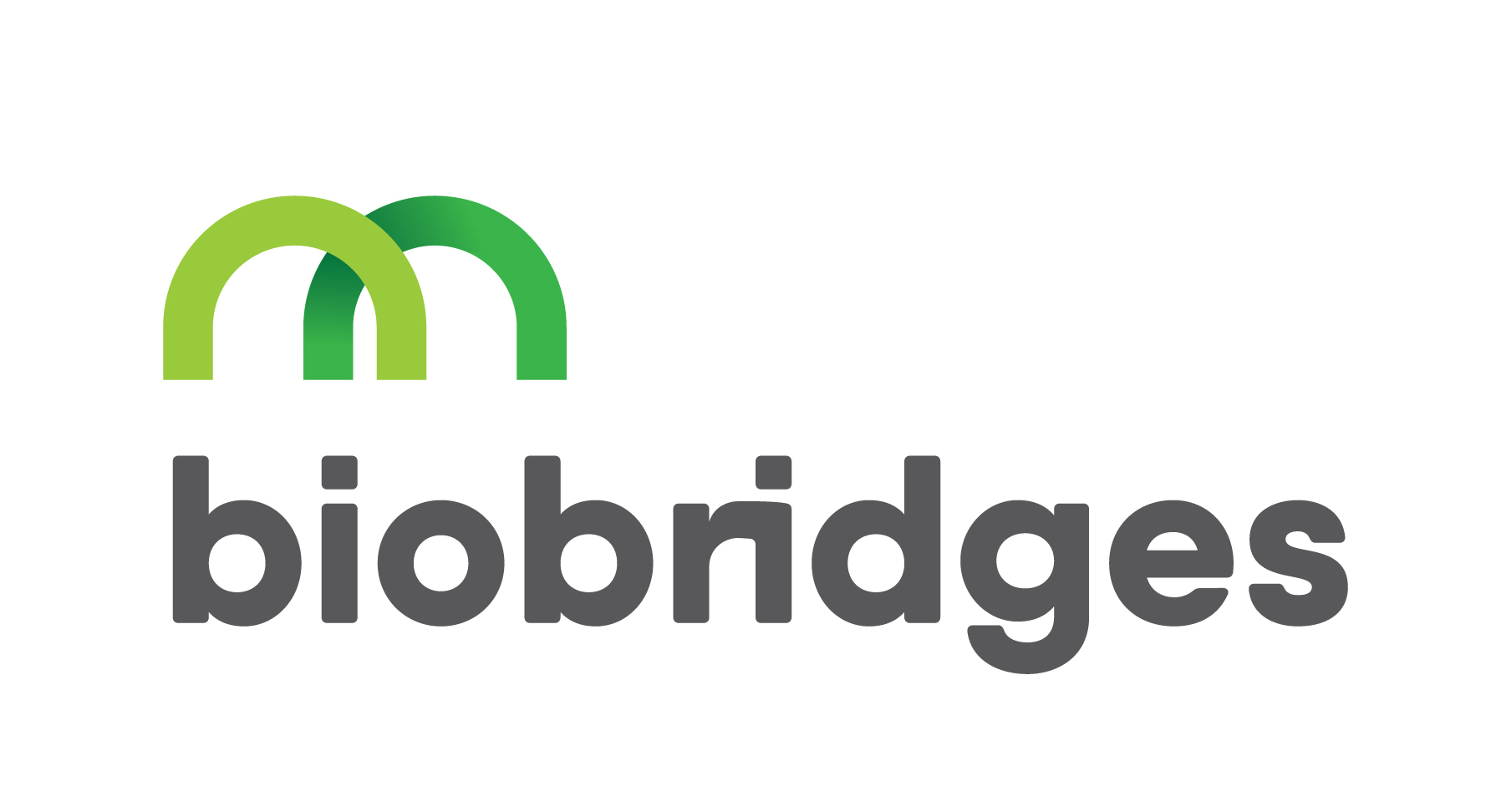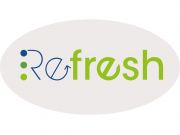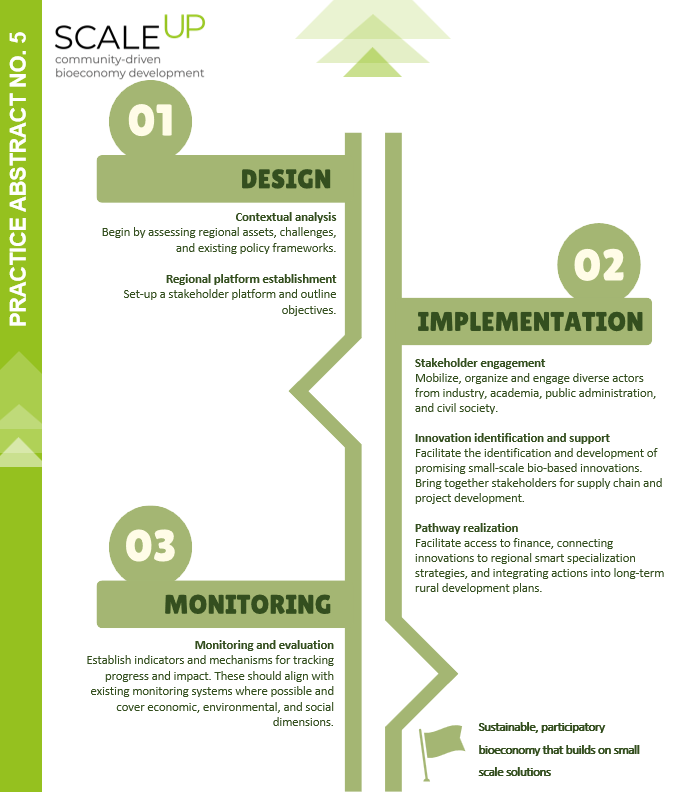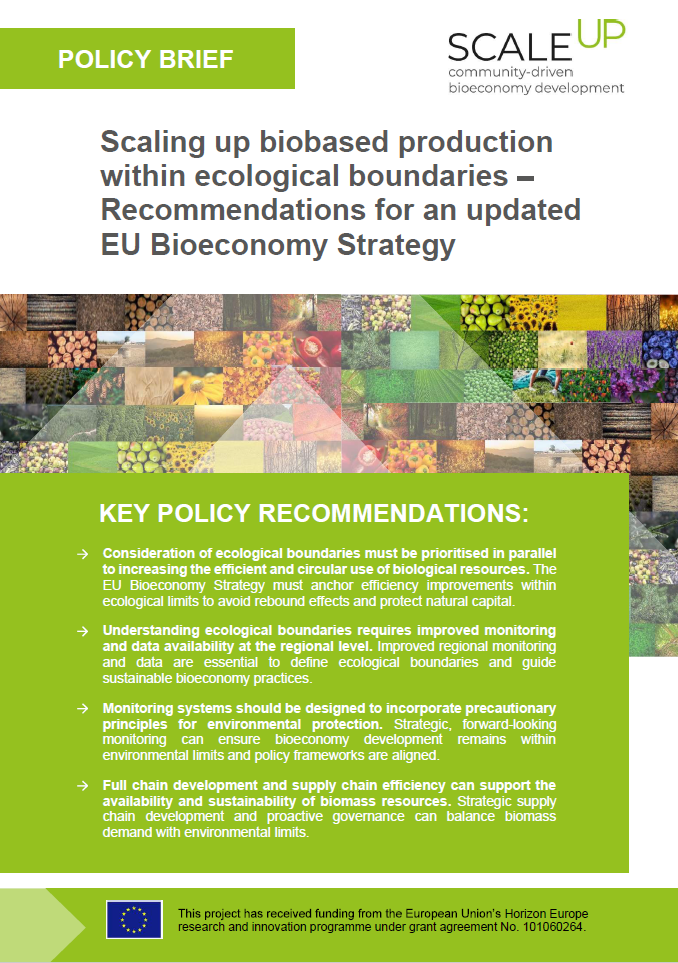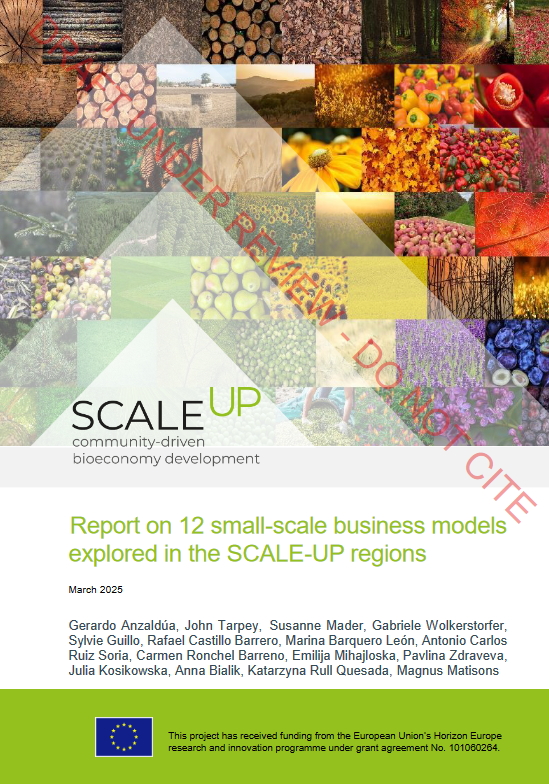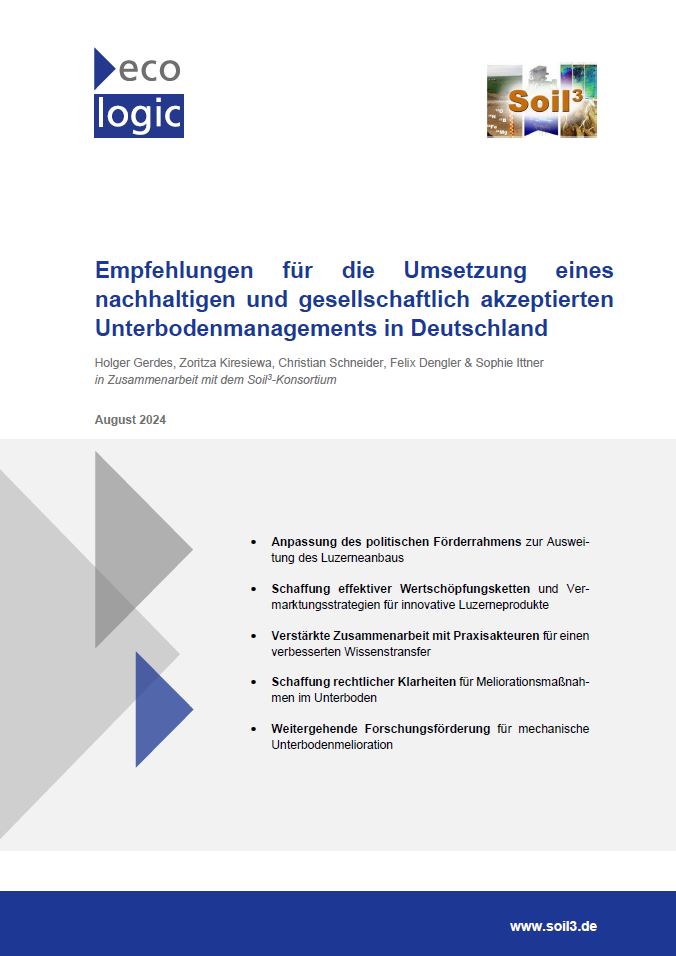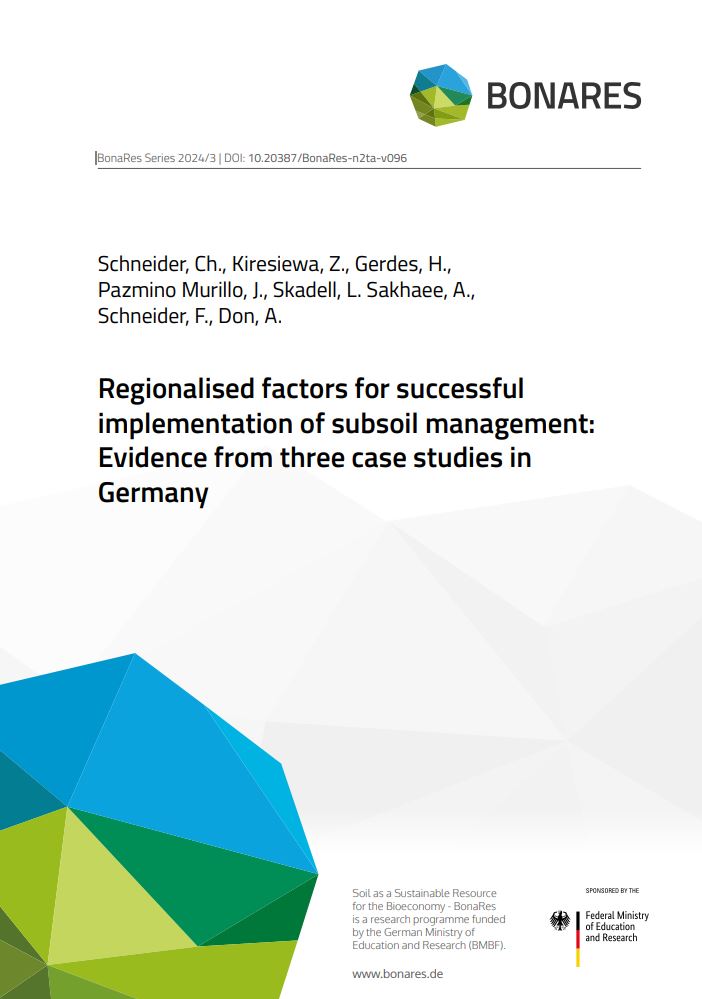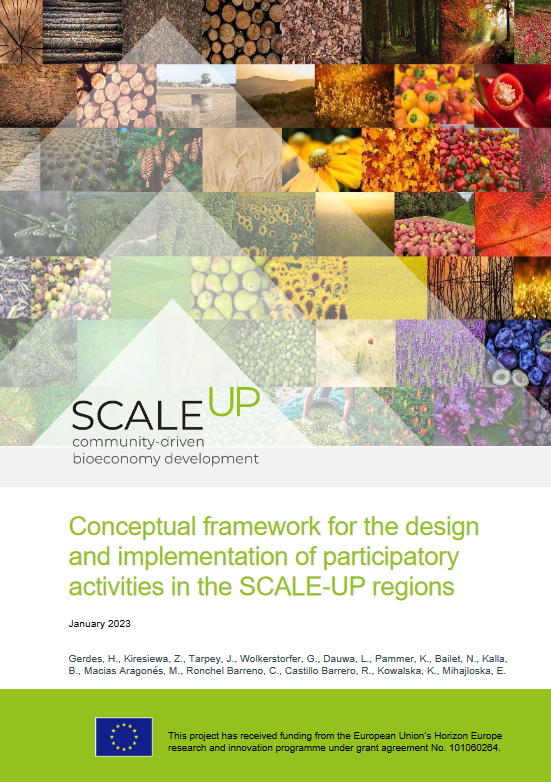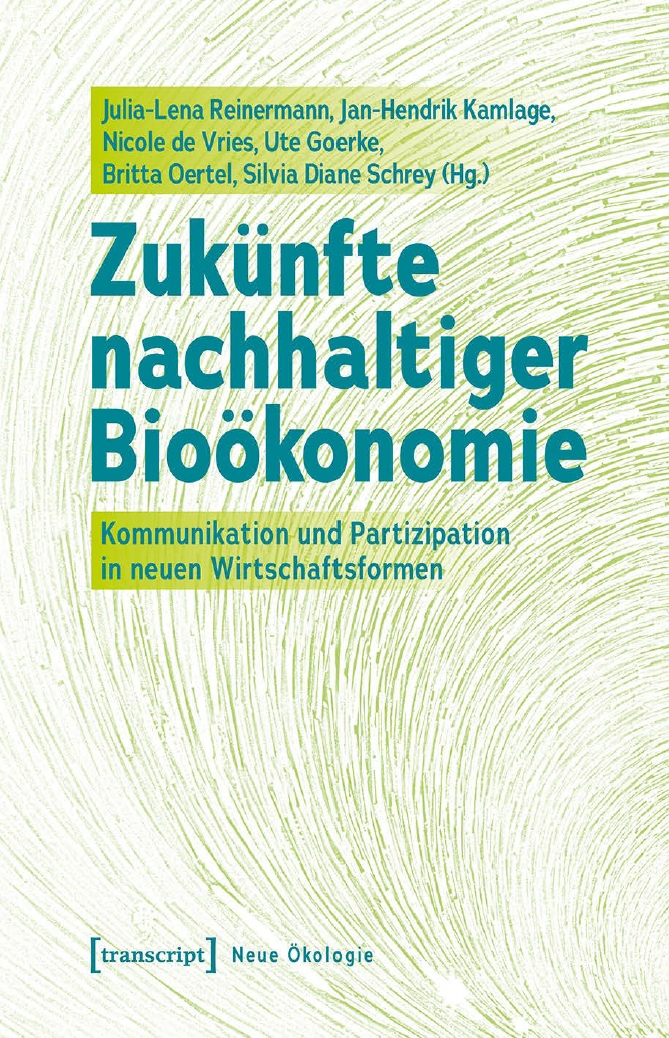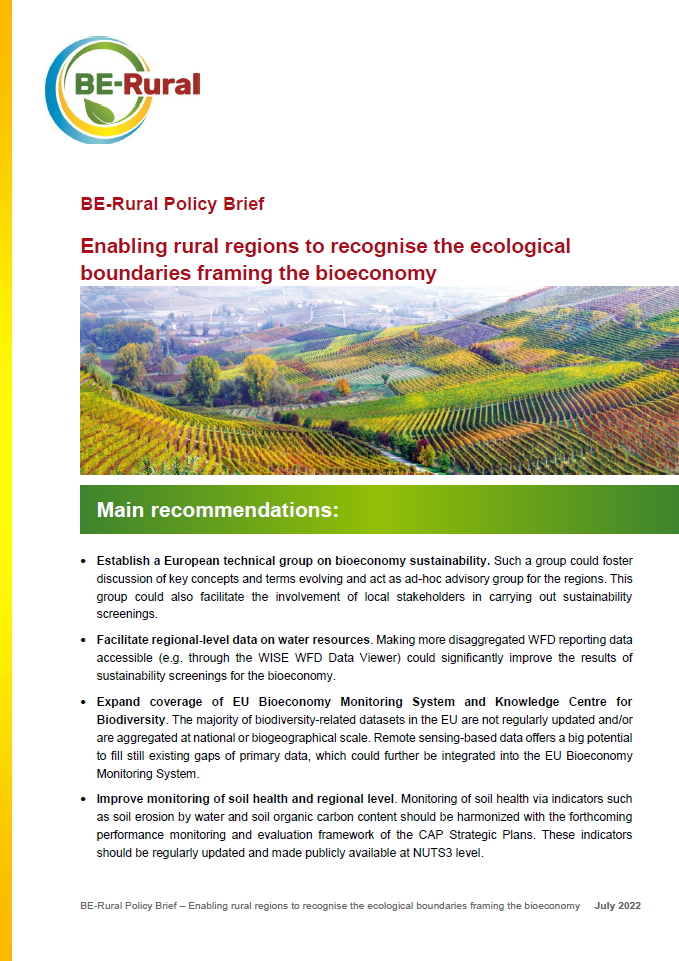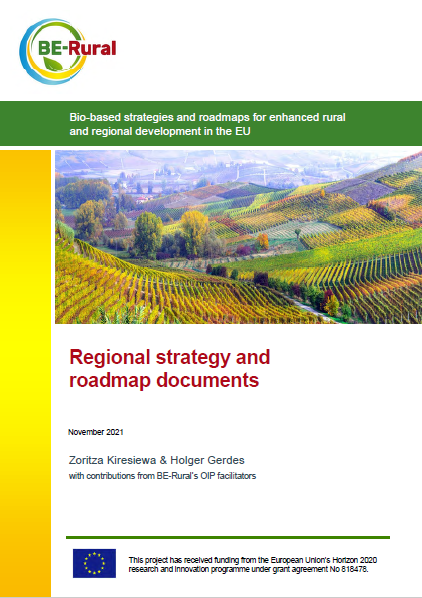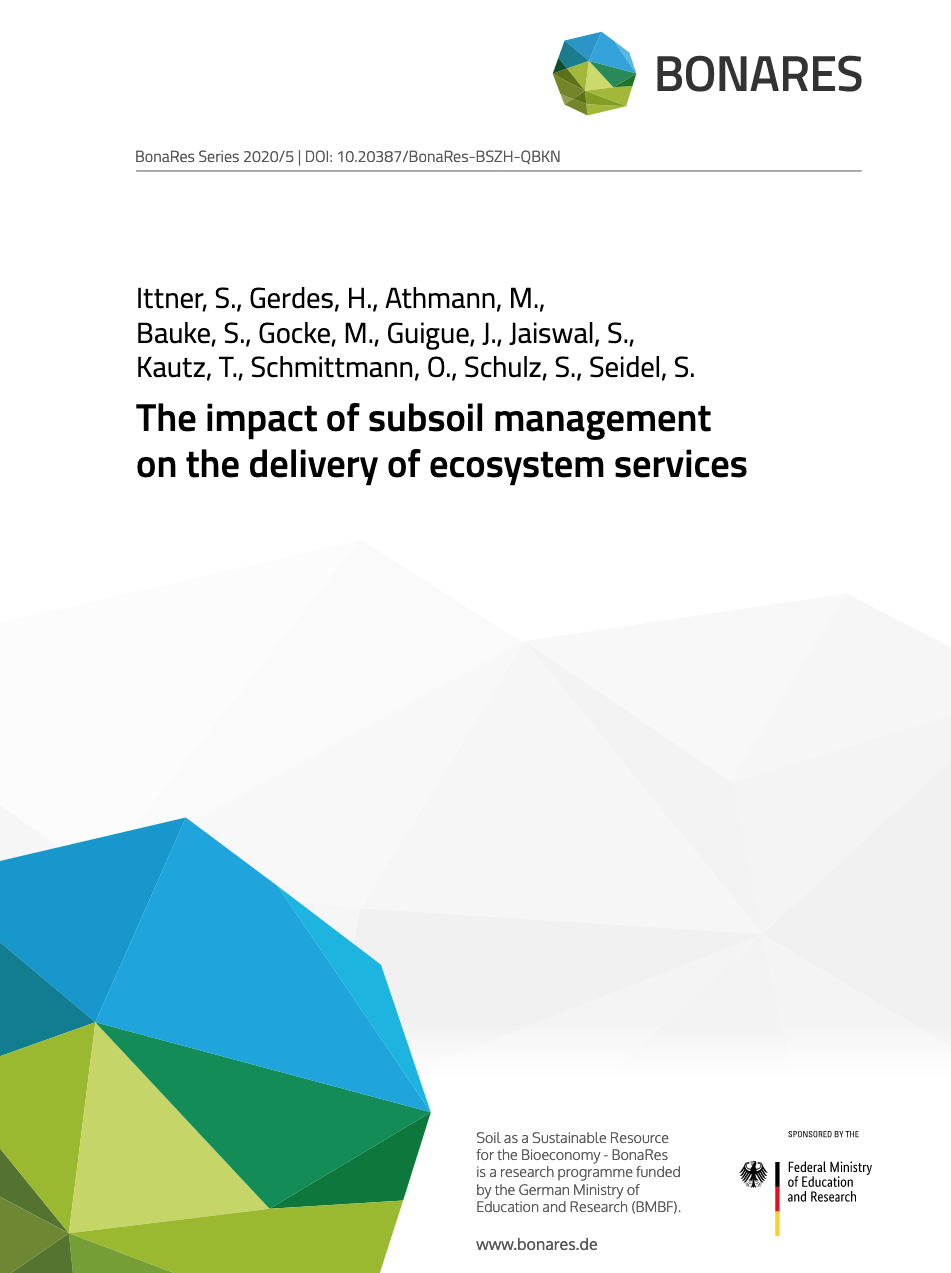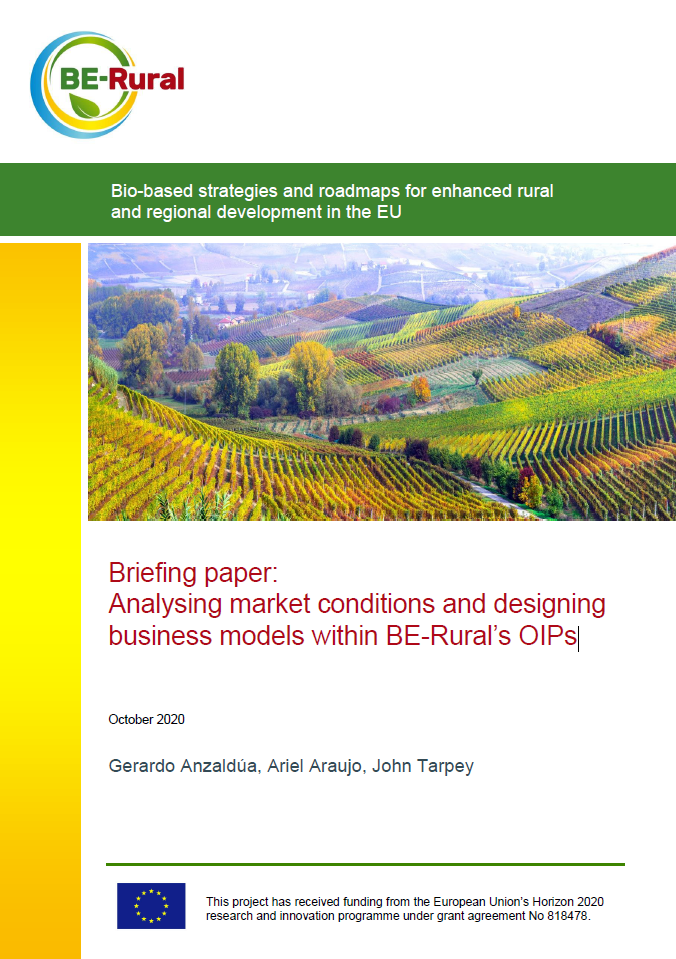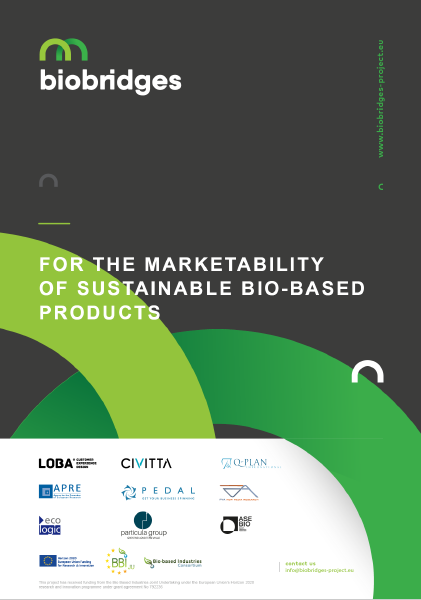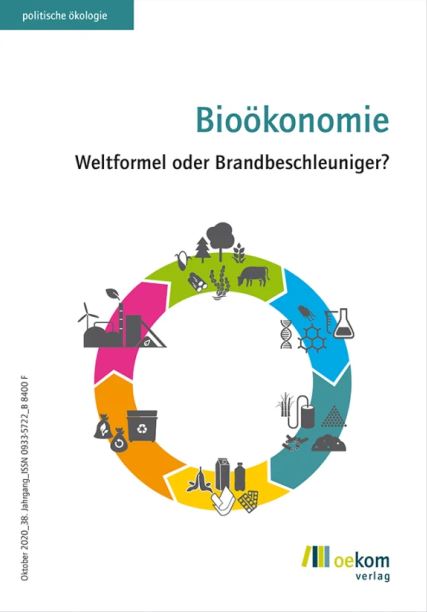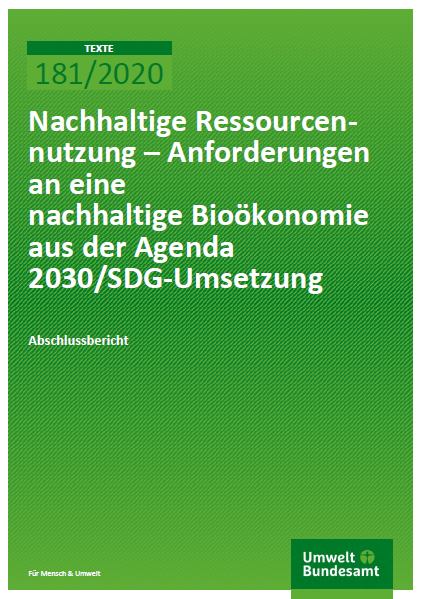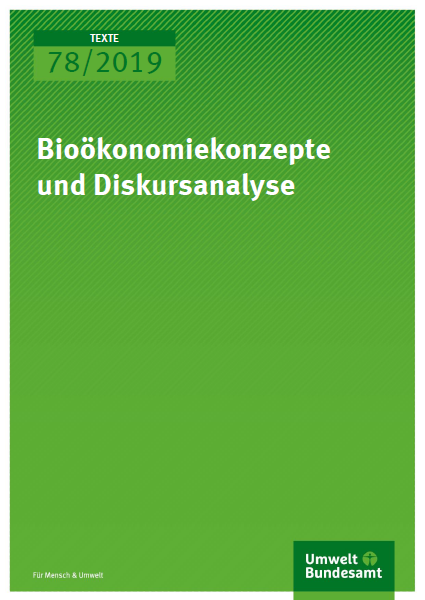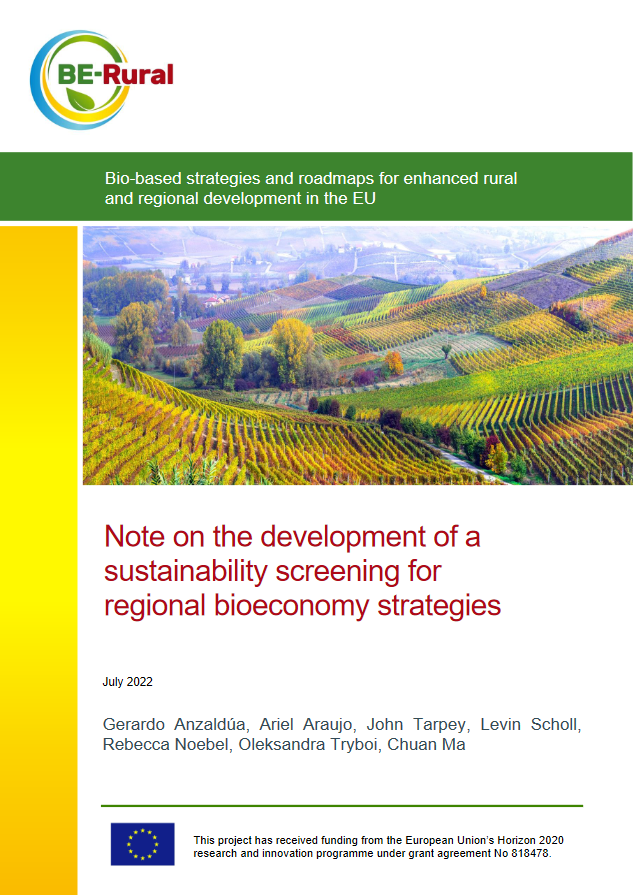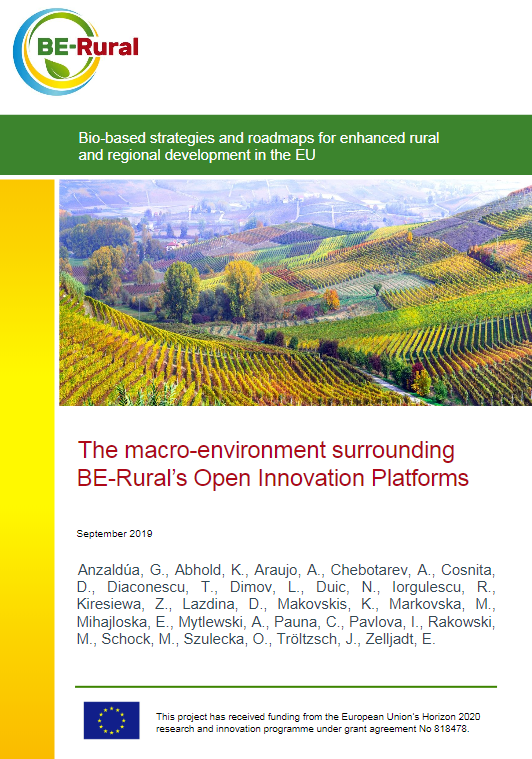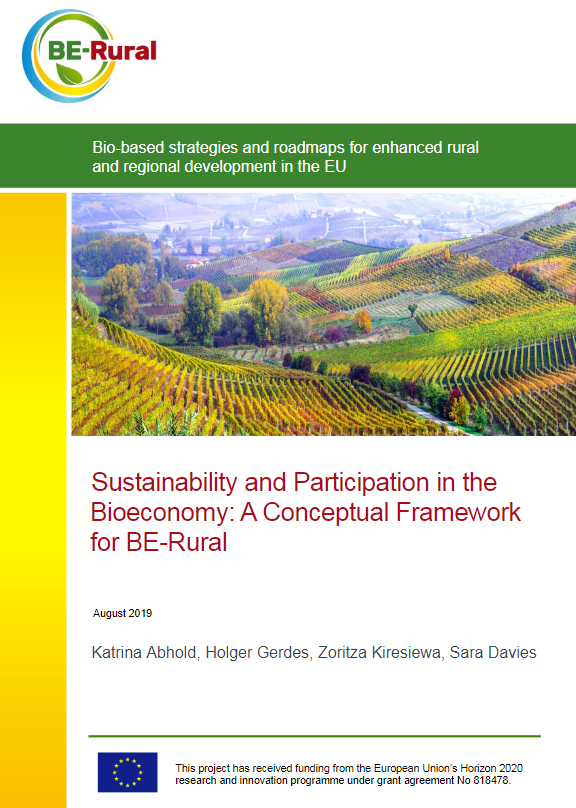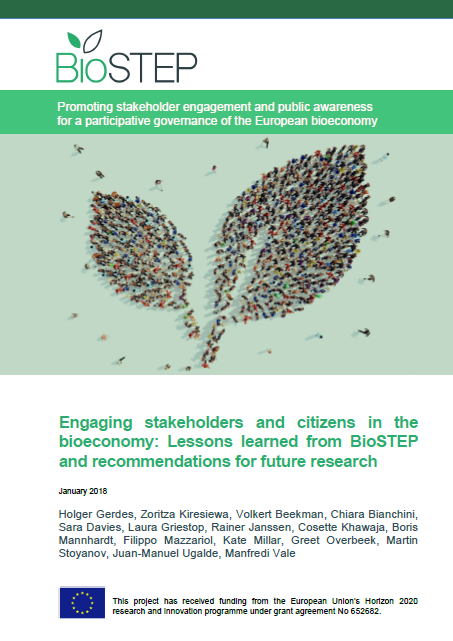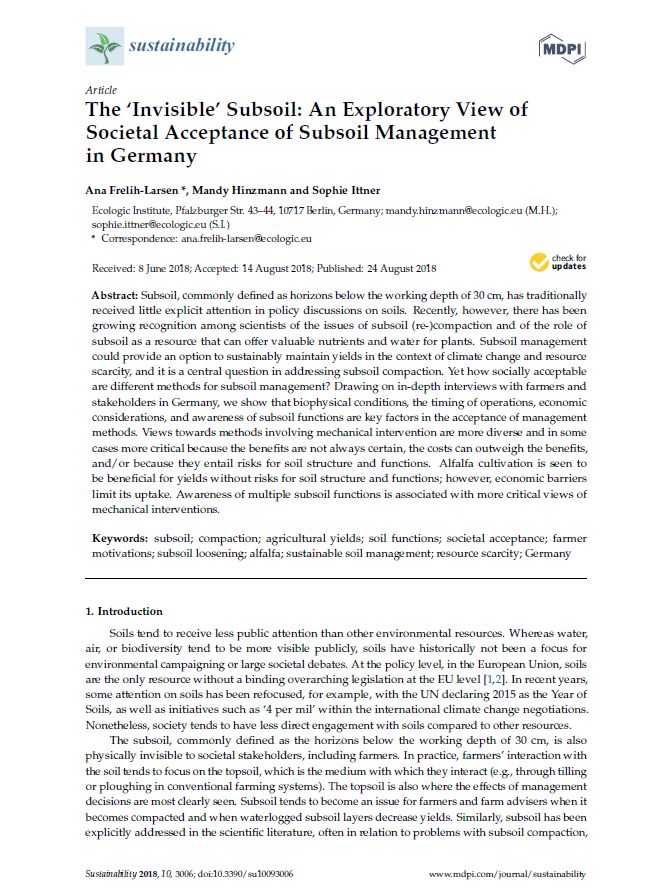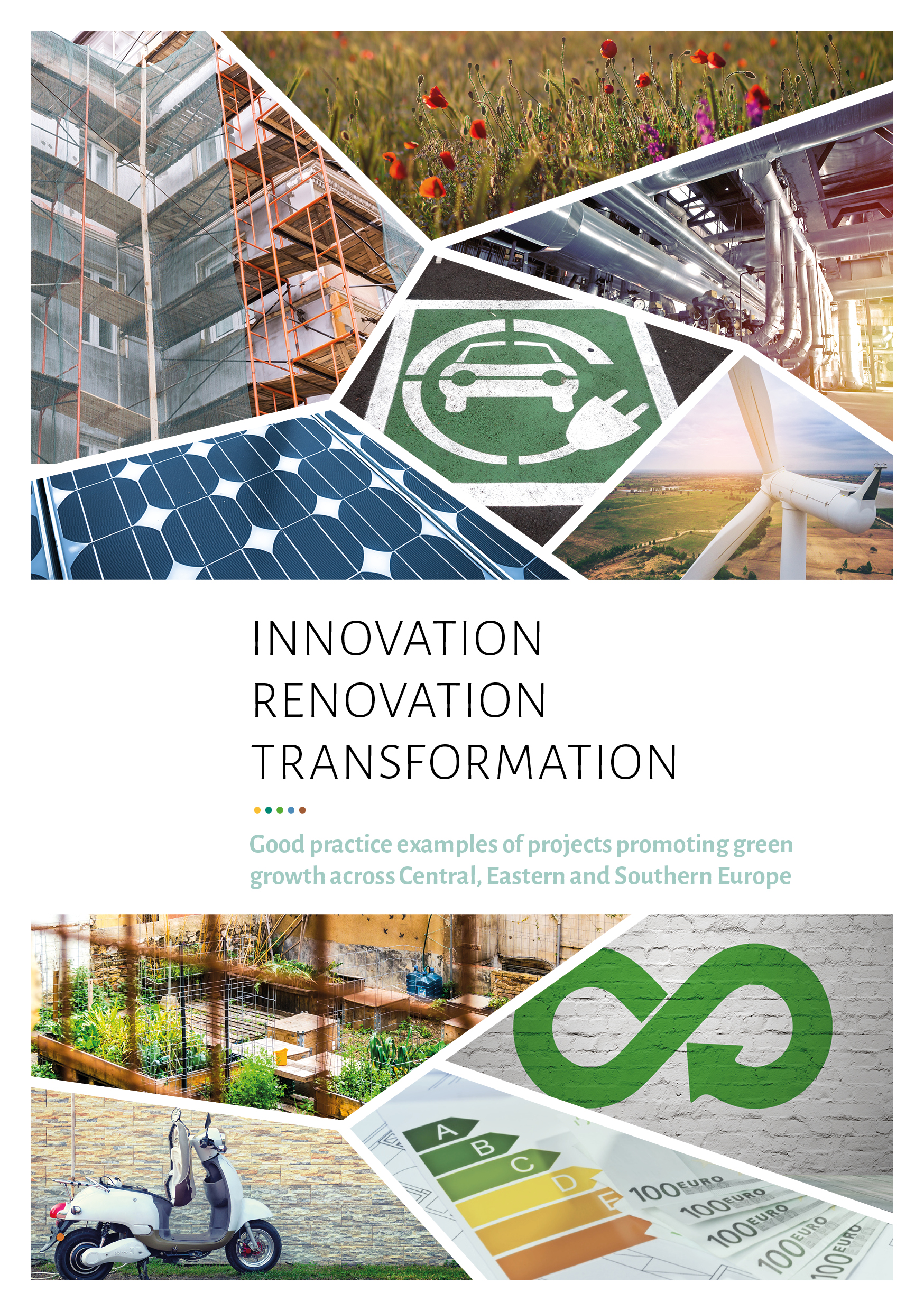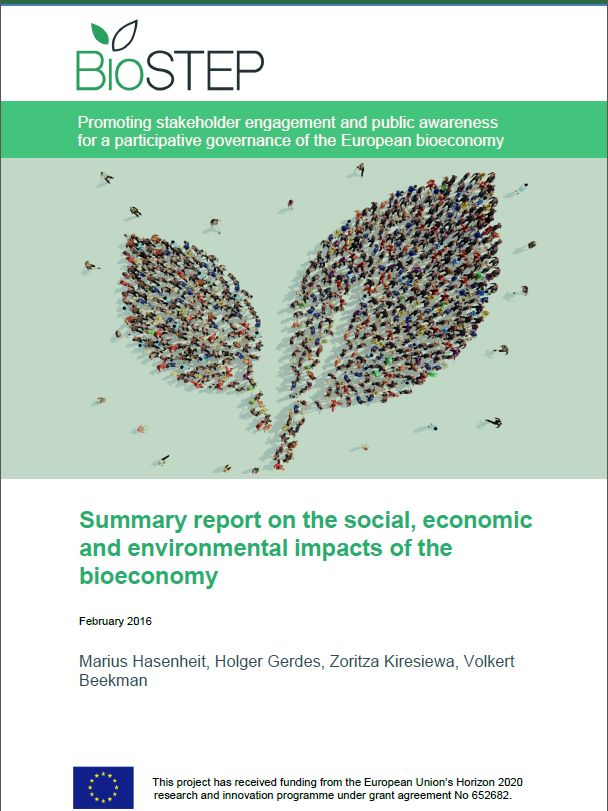Bioeconomy
The bioeconomy refers to the use of renewable biological resources for the pursuit of economic and ecological objectives. However, the transformation towards a bio-based economy brings with it controversy and conflicting goals, prompting questions regarding the ethical foundations as well as political and institutional framework conditions.
Ecologic Institute aims to foster the discourse on the opportunities and risks of the European bioeconomy and to support the participatory development of national and regional bioeconomy strategies. Civil society actors and the general public are integrated in a credible and transparent manner.
Building on the principles of action research, Ecologic Institute investigates how a sustainable bioeconomy can be developed while balancing economic, environmental and social goals. In addition, the team investigates the potentials of rural development while ensuring the sustainable use of agricultural, forestry and marine ecosystems.
Providing evidence-based advice to policymakers is a cornerstone of Ecologic Institute’s work — for example, through our recommendations contributing to the ongoing revision of the EU Bioeconomy Strategy.
Contact
Related Topics
Selected Projects for Bioeconomy
Thematic European Rural Bioeconomy Network (thERBN)
- Duration
-
-
- Funding
-
European Commission, Directorate-General Research & Innovation (DG Research & Innovation), International
Advisory Services on Bioeconomy
- Duration
-
-
- Funding
-
European Investment Bank (EIB), International
Concise Consumer Communication through Robust Labels for Bio-based Systems (3-CO)
- Duration
-
-
- Funding
-
European Commission, Directorate-General Research & Innovation (DG Research & Innovation), International
Concepts, Tools and Applications for Community-driven Bioeconomy Development in European Rural Areas (SCALE-UP)
- Duration
-
-
- Funding
-
European Commission, Directorate-General Research & Innovation (DG Research & Innovation), International
Sustainable Subsoil Management as Part of the Bioeconomy (Soil³)
- Duration
-
-
- Funding
-
Federal Ministry of Education and Research (BMBF), Germany
Greening the Blue Bioeconomy and Transition to Sustainable Fisheries and Aquaculture
- Duration
-
-
- Funding
-
European Environment Agency (EEA), International
Bio-based Strategies and Roadmaps for Enhanced Rural and Regional Development in the EU (BE-Rural)
- Duration
-
-
- Funding
-
European Commission, Directorate-General Research & Innovation (DG Research & Innovation), International
Climate Change and Bioeconomy – Sustainability gap analysis for the agricultural sector
- Duration
-
-
- Funding
-
European Environment Agency (EEA), International
Improving the Market Access of Sustainable Bio-based Products (BIOBRIDGES)
- Duration
-
-
- Funding
-
Bio-Based Industries Joint Undertaking (BBI JU), International European Commission, Directorate-General Research & Innovation (DG Research & Innovation), International
Sustainable Resource Use – Requirements for a Sustainable Bioeconomy from Agenda 2030 / SDG Implementation
- Duration
-
-
- Funding
-
German Environment Agency (UBA), Germany
Provision of Technical Support Related to Target 2 of the EU Biodiversity Strategy to 2020
- Duration
-
-
- Funding
-
European Commission, Directorate-General Environment (DG Environment), International
Resource Efficient Food and dRink for the Entire Supply cHain (REFRESH)
- Duration
-
-
- Funding
-
European Commission, Research Executive Agency (REA), International
Lisbon Workshop on Blue Natural Capital (BNC)
- Duration
-
-
- Funding
-
Ocean Azul Foundation, Portugal
Support to Research and Innovation Policy for Bio-based Products (BIO-SPRI)
- Duration
-
-
- Funding
-
European Commission, Directorate-General Research & Innovation (DG Research & Innovation), International
Promoting Stakeholder Engagement and Public Awareness for a Participative Governance of the European Bioeconomy (BioSTEP)
- Duration
-
-
- Funding
-
European Commission, Directorate-General Research & Innovation (DG Research & Innovation), International
Global Land Use and Sustainability (GLOBALANDS)
- Duration
-
-
- Funding
-
German Environment Agency (UBA), Germany International Institute for Sustainability Analysis and Strategy (IINAS), Germany
Selected Publications for Bioeconomy
Gerdes, H., Kiresiewa, Z., Anzaldúa, G., van der Voort, S., & Feil, F. (2025): Evidence-based guidance framework for designing, implementing and monitoring small-scale bio-based solutions in rural areas. Ecologic Institute.
Altamore, S., Gerdes, H., Kiresiewa, Z., Paris, B., Balafoutis, T., Borzęcka, M., Rozakis, S., Galatsopoulos, A., Parodos, L., Ma, C. (2025). From Strategy to Action for a Regional, Participatory, and Sustainable EU Bioeconomy: Evidence and recommendations from RuralBioUp, SCALE-UP, BioRural, and MainstreamBIO. Joint Policy Paper. Agency for the Promotion of European Research, Rome.
Tarpey, J., Gerdes, H., Kiresiewa, Z., Anzaldúa, G. (2025). Scaling up biobased production within ecological boundaries – Recommendations for an updated EU Bioeconomy Strategy. Policy Brief. Ecologic Institute, Berlin.
Kiresiewa, Zoritza and Holger Gerdes (2025). Enabling change from the ground up: Policy recommendations to foster social innovation in Europe. Policy Paper of the 3-CO project.
Anzaldúa, Gerardo et al. (2025) Report on 12 small-scale business models explored in the SCALE-UP regions (EU Horizon GA no. 101060264), Deliverable D4.2
Gerdes, Holger, Kiresiewa, Zoritza, Schneider, Christian, Dengler, Felix, und Ittner, Sophie (2024): Empfehlungen für die Umsetzung eines nachhaltigen und gesellschaftlich akzeptierten Unterbodenmanagements in Deutschland. Ecologic Institut, Berlin.
Schneider, C.; Kiresiewa, Z.; Gerdes, H.; Pazmino Murillo, J.; Ecologic Institute. Skadell, L.; Sakhaee, A.; Schneider, F.; Don, A.; Thünen Institute: Regionalised factors for successful implementation of subsoil management: Evidence from three case studies in Germany. Berlin. 2024.
Gerdes, H. et al. (2023). Conceptual framework for the design and implementation of participatory activities in the SCALE-UP regions (EU Horizon GA no. 101060264), D1.2
Kiresiewa, Zoritza; Laurens Duin and Holger Gerdes 2022: Limitations of Stakeholder and Public Engagement in Bioeconomy Strategy Development Processes. In: Julia-Lena Reinermann, Jan-Hendrik Kamlage, Nicole de Vries, Ute Goerke, Britta Oertel, Silvia Diane Schrey (Hg.): Zukünfte nachhaltiger Bioökonomie. Kommunikation und Partizipation in neuen Wirtschaftsformen. Bielefeld: transcript Verlag.
Ittner, S., Gerdes, H., Kiresiewa, Z. (2022). The impact of subsoil management on the delivery of ecosystem services: An economic valuation for Germany. BonaRes Series. https://doi.org/10.20387/BonaRes-WVC6-YJ14
Tarpey, J., Araujo, A. and Anzaldua, G. [Ed.] 2022: Enabling rural regions to recognise the ecological boundaries framing the bioeconomy. Policy Brief. Ecologic Institute.
Kiresiewa, Z., Gerdes, H. (2021). D5.3: Regional strategy and roadmap documents. Deliverable of the H2020 BE-Rural project
Ittner, S., Gerdes, H., Athmann, M., Bauke, S. L., Gocke, M., Guigue, J., Jaiswal, S., Kautz, T., Schmittmann, O., Schulz, S., Seidel, S. (2020). The impact of subsoil management on the delivery of ecosystem services. BonaRes Series. https://doi.org/10.20387/bonares-bszh-qbkn
Gerardo Anzaldua, Ariel Araujo, John Tarpey (2020). D5.1: Analysing market conditions and designing business models within BE-Rural's OIPs. Briefing paper. Deliverable of the H2020 BE-Rural project
Hinzmann M, Ittner S, Kiresiewa Z and Gerdes H (2021). An Acceptance Analysis of Subsoil Amelioration Amongst Agricultural Actors in Two Regions in Germany. Front. Agron. 3:660593. doi: 10.3389/fagro.2021.660593
Duin, Laurens, Zoritza Kiresiewa, 2020. Improving the Public Acceptance of Bio-Based Products and Processes at Regional and Local Level. biobridges
Wolff, F., Kiresiewa, Z. and Möller, M., (2020): Handlungsoptionen einer nachhaltigen Bioökonomiepolitik: Wo ein Wille ist, ist auch ein Weg. In: politische ökologie. Volume 162 (03 - 2020) – Bioökonomie.
Martin Möller, Viviana López, Rasmus Prieß, Tobias Schleicher, Katja Hünecke, Klaus Hennenberg, Franziska Wolff, Zoritza Kiresiewa, Marius Hasenheit, Patrick Schröder, Prof. Dr. Bernward Gesang (2020). Nachhaltige Ressourcennutzung – Anforderungen an eine nachhaltige Bioökonomie aus der Agenda 2030/SDG-Umsetzung. Abschlussbericht. Umweltbundesamt: Dessau-Roßlau.
Tarpey, J., Beusch, C. 2020: Small-Scale Technologies and Business Models for Regional Bioeconomies. Joint Guidance Document for Stakeholders. Ecologic Institute, Berlin.
Kiresiewa, Zoritza et. al. 2019: Bioökonomiekonzepte und Diskursanalyse. Teilbericht (AP1) des Projekts "Nachhaltige Ressourcennutzung – Anforderungen an eine nachhaltige Bioökonomie aus der Agenda 2030/SDG-Umsetzung". Umweltbundesamt: Dessau-Roßlau.
Anzaldúa, Gerardo et al. (2022). D5.4 Note on the development of a sustainability screening for regional bioeconomy strategies. Deliverable of the H2020 BE-Rural project.
Anzaldúa, G., Abhold, K., Araujo, A., Chebotarev, A., Cosnita, D., Diaconescu, T., Dimov, L., Duic, N., Iorgulescu, R., Kiresiewa, Z., Lazdina, D., Makovskis, K., Markovska, M., Mihajloska, E., Mytlewski, A., Pauna, C., Pavlova, I., Rakowski, M., Schock, M., Szulecka, O., Tröltzsch, J., Zelljadt, E. (2019). D2.2 The macro-environment surrounding BE-Rural’s Open Innovation Platforms. Deliverable of the H2020 BE-Rural project.
Abhold, K., Gerdes, H., Kiresiewa, Z., Davies, S. (2019). D1.1 Sustainability and Participation in the Bioeconomy: A Conceptual Framework for BE-Rural. Deliverable of the H2020 BE-Rural project.
BioSTEP consortium (2018): BioSTEP Research Recommendations - Engaging Stakeholders and Citizens in the Bioeconomy.
Gerdes, Holger; Zoritza Kiresiewa, Volkert Beekman, et. al. 2018: Engaging stakeholders and citizens in the bioeconomy: Lessons learned from BioSTEP and recommendations for future research.
Frelih-Larsen, A.; Hinzmann, M.; Ittner, S. (2018). The 'Invisible' Subsoil: An Exploratory View of Societal Acceptance of Subsoil Management in Germany. Sustainability 2018, 10, 3006.
doi:10.3390/su10093006
Federal Ministry for the Environment, Nature Conservation, Nuclear Safety (2018): Innovation, Renovation, Transformation - Good practice examples of projects promoting green growth across Central, Eastern and Southern Europe.
BioSTEP consortium (2017): Creating Networks for the Transition to a Bio-based and Circular Economy. BioSTEP Policy Paper.
Hasenheit, Marius; Holger Gerdes; Zoritza Kiresiewa et. al. 2016: Summary Report on the Social, Economic and Environmental Impacts of the Bioeconomy. Promoting stakeholder engagement and public awareness for a participative governance of the European bioeconomy. Berlin.
Selected Events for Bioeconomy
Conference:European Rural Circular Bioeconomy Conference
- Date
-
-
- Location
- online and Brussels, Belgium
Digital Event:Strengthening Support for Social Innovation
- Date
-
- Location
- online
Conference:Scaling Up Innovations in the Bioeconomy
- Date
-
-
- Location
- Nantes, France
Digital Event:How Should the EU Bioeconomy Strategy and its Upcoming Review Address Challenges Arising from Bioeconomy-related Trade-offs?
- Date
-
- Location
- online
Digital Event:Balancing Socio-economic and Environmental Objectives
- Date
-
- Location
- online
Workshop:How Can the Cultivation of Deep-rooted Crops be Promoted?
- Date
-
- Location
- Hessische Staatsdomäne Frankenhausen, Germany
Conference:Inspiring Regional Agendas for Inclusive Bioeconomies
- Date
-
-
- Location
- Frombork, Poland
Workshop:Benefits of Participatory Development of Regional Bioeconomy Strategies
- Date
-
- Location
- online
Conference:Exploring the Bioeconomy as a Central Pillar of Regional Recovery Plans during and after COVID-19 – BE-Rural Mid-Term Conference
- Date
-
- Location
- online
Workshop:The Challenges and the Significance of Bioplastics as Packaging Materials in the Food Industry
- Date
-
- Location
- Gronau, Germany
Workshop:Challenges and Opportunities in the Bioeconomy
- Date
-
- Location
- Bonn, Germany
Workshop:Beyond Sectors – Chances and Challenges of Multi-stakeholder Collaboration in the Bioeconomy
- Date
-
- Location
- Halle (Saale), Germany
Conference:Innovative Bio-based Products: Investment, Environmental Impacts and Future Perspectives
- Date
-
- Location
- Brussels, Belgium
Conference:Effective Stakeholder and Public Engagement in the Bioeconomy – BioSTEP Conference
- Date
-
- Location
- Brussels, Belgium
Conference:Creating Networks for the Transition to a Bio-based and Circular Economy – BioSTEP Forum
- Date
-
- Location
- Brussels, Belgium
Workshop:A Bioeconomy Strategy for Austria: The Role of Civil Society – BioSTEP Policy Workshop
- Date
-
- Location
- Graz, Austria
Workshop:Shaping the Scottish Bioeconomy Together – BioSTEP Policy Workshop
- Date
-
-
- Location
- Glasgow, United Kingdom
Workshop:The Future is Bright, the Future is the European Bioeconomy? – BioSTEP Stakeholder Workshop
- Date
-
- Location
- Utrecht, Netherlands
Selected Presentations for Bioeconomy
Panel discussion:Bio-based Economy – Innovations in practice
- Date
-
- Location
- Brussels, Belgium
Panel discussion:Bioeconomy: Sustainable and Circular
- Date
-
- Location
- Vienna, Austria


